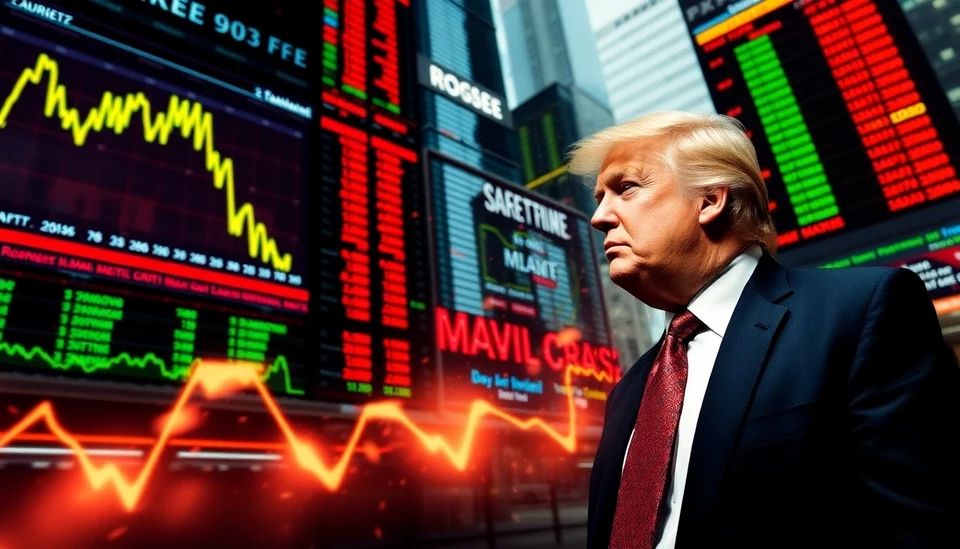
In a dramatic escalation of trade tensions, former President Donald Trump has implemented a series of sweeping tariffs that are sending shockwaves through global markets. The move, announced during a high-profile press conference, is a bid to address what Trump has labeled unfair competition and trade practices from key nations, particularly in Asia and Europe. As analysts scramble to assess the implications, both investors and businesses are bracing for a complex ripple effect that could alter the economic landscape.
The tariffs, which target a wide range of imported goods, are expected to significantly impact industries from technology to agriculture. Trump's administration claims that these measures are necessary to protect American jobs and foster domestic production. Yet, many economists argue that the long-term repercussions could include higher prices for consumers and a slowdown in economic growth. With a backdrop of already fragile post-pandemic recovery, the stakes are high.
Markets reacted swiftly to the news, with major indices witnessing notable declines. The S&P 500, a benchmark for U.S. stocks, experienced a sharp drop, reflecting investor concerns over heightened uncertainty. International markets were equally affected, particularly stocks tied to export-driven sectors, as fears of retaliatory measures from affected countries loomed large.
Alongside the market upheaval, experts have begun to analyze the geopolitical ramifications of these tariffs. Countries affected by the new levies may retaliate with their own tariffs, which could further escalate the trade disputes and lead to a potential tit-for-tat scenario. The possibility of a broader trade war hangs heavily over discussions, with economists warning that such a conflict could stifle global trade and economic relationships established over decades.
Moreover, industries that rely heavily on international supply chains, such as technology and auto manufacturing, could face significant challenges in adjusting to the new tariff environment. Components sourced from abroad may see increased costs, ultimately trickling down to consumers, who could witness surging prices on everyday products. For American farmers, traditionally strong markets may begin to falter as other countries impose retaliatory tariffs on U.S. agricultural exports.
As the situation develops, businesses across the spectrum are taking a wait-and-see approach. Many are weighing options to mitigate potential losses, including exploring new supply sources or increasing domestic production to circumvent the tariffs. The uncertainty surrounding the tariffs could also influence consumer behavior, as hesitancy may lead to reduced spending during an already delicate economic period.
In conclusion, Trump's latest round of tariffs marks a significant turning point in the ongoing saga of U.S. trade policy. As stakeholders navigate the ensuing turbulence, the broader implications for global trade and economic stability will be closely monitored in the weeks and months ahead.
#TrumpTariffs #GlobalMarkets #TradeWar #Economy #Investing #TradePolicy
Author: Rachel Greene




